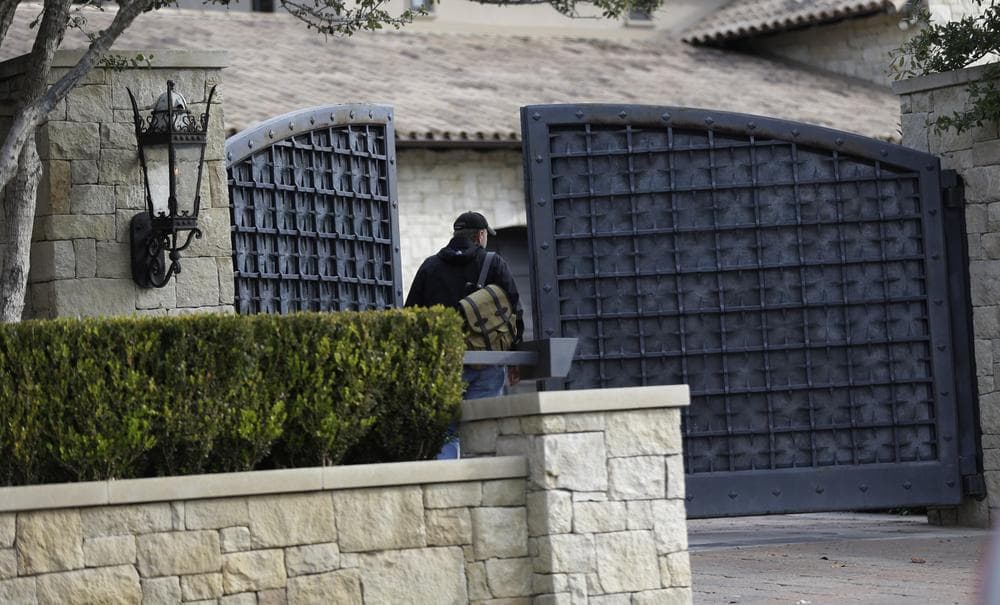Advertisement
Interview
SI's Law Expert Michael McCann Cross-Examines Lance Armstrong
Resume
Michael McCann does not report on cycling. He writes about legal issues related to sports for Sports Illustrated, and he's the director of the University of New Hampshire's Sports and Entertainment Law Institute. That’s why McCann was surprised when he noticed Lance Armstrong had begun following him on Twitter. Recently Armstrong invited McCann to his home in Austin, Texas, where they had a three-hour chat – Armstrong’s first interview since talking with Oprah Winfrey in January. Michael McCann joined Bill Littlefield to talk about the conversation.
BL: After you noticed Lance Armstrong was among your followers, you and Armstrong traded direct messages, a private option on Twitter. What were those interactions with him like?
MM: Well initially, Bill, it was to figure out if this was Lance Armstrong. I really didn’t think it was him. I thought his account had been hacked, perhaps. But it was him, and he confirmed it through Twitter, and then we began a conversation. I noted that I had written about some of the legal issues that he’s facing, and other related business issues. And we just began conversing, and I said, well, how about we meet up. I’m the one who proposed that, and he said, ‘OK.’ Of course, the whole time I had not spoken with him, and that was a little bit of a concern for my wife, in particular who worried that maybe this isn’t really him. Maybe this is a hoax. We know about Manti Te’o, the player at Notre Dame. That this was somehow gonna be a trick. I go down there, and it would all be a sham. But I figured, look, if that’s the case, then I have a little bit of a trip to Austin, then I come back home. It’s not the end of the world. So I did take the trip, and it was him, and from there we had a very lively conversation about a number of topics related to his reputation, his past, the legal issues he’s facing. I had some follow-up questions from his conversation with Oprah Winfrey. And although most of it is off the record, I was able to reveal some in this week’s issue of Sports Illustrated, and I hope to reveal more as time goes on.
BL: Well, I’m curious. How much can you tell us about what you really wanted to ask him about?
MM: Some of what I wanted to ask him I was able to reveal. For instance, the allegation that he told a doctor back in 1996 that he was doping, he in [the] Oprah interview, would not comment on that. He denied it for years. But to me, he said he honestly didn’t remember, so this was a different explanation than he had given. And he also talked about the lawsuits against other people that he filed. He sued a number of individuals even though he knew they were either telling the truth, or mostly telling the truth. We talked about those and sort of why he did it. And he didn’t make excuses, he didn’t blame his lawyers, he didn’t blame his advisers. But he did note that companies with which he had endorsement contracts encouraged him to respond aggressively to allegations of doping. Now they didn’t tell him to sue anyone, just to be clear, but he did respond aggressively, and of course it was too aggressive.
BL: You mentioned that Lance Armstrong knew you had been writing about not only his legal issues, but issues related to his business connections. Did he have any questions for you?
MM: I think in any conversation there are questions that are asked back, rhetorical questions, and things like that. But for the most part it was me really asking him questions, and he had a lot to tell.
BL: Did the interview meet up to your expectations?
MM: Yeah it did, I feel like we covered a good deal of ground. Having said that, there are a lot of things that he said that I have to verify or refute before we can reveal them. There’s the trick of the fact that he’s being sued by a whole bunch of parties, including the Department of Justice in a case that could be worth over $90 million. He’s obviously reticent about being quoted on the record while this is going on but there are other claims that he made, and it’s my job to do some due diligence and figure out what exactly those claims are in terms of accuracy.
BL: There were you in Lance Armstrong’s home in Austin, Texas. Did you look around the wall and see that there were still seven yellow jerseys framed there?
MM: I did look and they were not there. We were in his home office so I don’t know if he ever had them there, but they were certainly not there. I did look.
This segment aired on March 9, 2013.